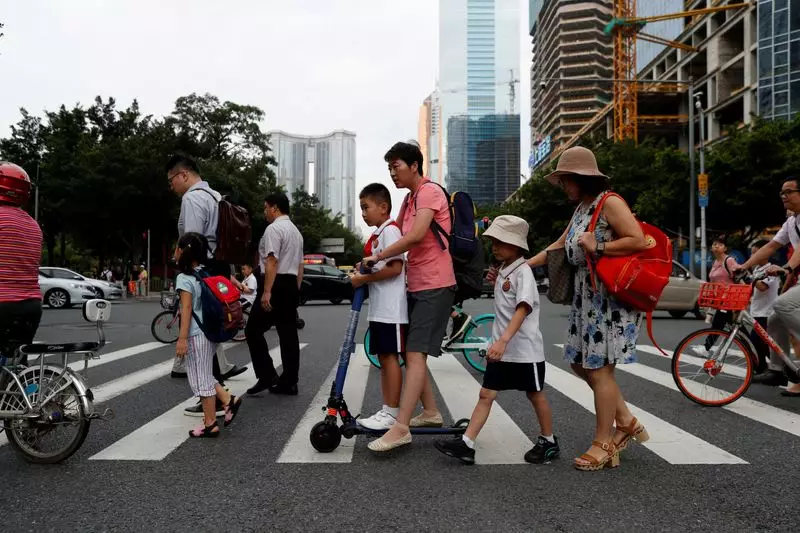The transformation of China’s private tutoring sector can be traced back to the profound regulatory shifts initiated by the government in 2021, encapsulated in the “double reduction” policy. This groundbreaking initiative aimed to alleviate academic and financial pressures on families by banning for-profit tutoring in key school subjects. As a result, the industry, once valued at approximately $100 billion, faced a drastic denouement, leading to significant layoffs and market devaluation of major players such as New Oriental Education and TAL Education. The landscape of education in China changed indefinitely; parental anxieties and the cutthroat nature of academic competition remained, prompting many families to seek alternative tutoring solutions despite government restrictions.
Recent developments indicate a cautious rebound for the private tutoring industry, largely stemming from a shift in governmental sentiment. While there has been no formal declaration to retract previous policies, industry insiders and analysts report an informal easing of operational restraints on tutoring businesses. This newfound tacit approval from policymakers seems to align with broader economic recovery efforts spurred by high youth unemployment and a pressing need for job creation. Interviews conducted with several parents highlight a receding uncertainty among tutoring organizations, reflecting a tacit shift in regulatory stances that is gradually perceptible at ground level.
Michelle Lee, a southern Chinese parent investing a substantial 3,000 yuan monthly in her children’s tutoring, notes an observable change in the behavior and transparency of tutoring schools. This sentiment resonates with many who have lived through the intense climate of fear and compliance that followed the crackdown, illustrating a landscape that is slowly but surely becoming more open and accessible.
Although the Chinese Ministry of Education has remained reticent on public discussions surrounding regulatory reform, significant indicators reveal that the overall policy atmosphere is transitioning from restrictive to more accommodating. In a recent press briefing, key figures involved in education policy mentioned adapting to “pain points” previously overlooked, suggesting a recognition of the current economic landscape’s demands.
The State Council’s inclusion of education services in a newly devised 20-point plan to stimulate domestic consumption marked a pivotal moment for tutoring businesses. This strategic decision not only buoyed the stock market for educational companies but also signaled an intention to harness the tutoring sector as a means of job creation in a labor market swelling with university graduates seeking employment.
Despite historical setbacks, the private tutoring sector has exhibited remarkable resilience. Educational organizations have learned to navigate the regulatory framework adeptly, and many have reinvented their offerings to align with government stipulations. An illustrative case is that of an English tutoring center in Zhejiang, which morphed its curriculum to teach science-related subjects while veiling its core focus under alternative purposes. This adaptability showcases an industry that, while diminished, refuses to be vanquished.
Some operators have refined their business models to retain profitability, shifting toward one-on-one tutoring sessions that cater to affluent families willing to absorb the high costs associated with private instruction. As parents grapple with the decision to employ expensive tutors or dedicate exhaustive hours assisting their children in a punishing academic environment, the demand for personalized instruction continues to climb, often at the expense of lower-income families who oscillate between despair and determination.
Given the current trajectory of policy adjustments and market response, the outlook for China’s tutoring industry looks promising. Recent statistics reveal an uptick in the number of licensed extracurricular tutoring centers, and major industry players are expanding their workforce after years of contraction. With investments in creative approaches to curriculum design, many institutions are surmounting regulatory barriers and innovating their offerings to cultivate renewed consumer trust.
Chinese education consultancy experts emphasize that employing strategic, compliant adaptations is essential for industry players aiming for sustainable growth. While challenges remain, such as navigating ongoing scrutiny from regulatory authorities, the tutoring sector appears poised for a significant revival, potentially emerging as an essential element in China’s economic recovery strategy.
The Chinese tutoring industry exemplifies an ongoing adaptive response to regulatory shifts born out of necessity. The gradual easing of restrictions is fostering an environment where educational services can not only survive but thrive within a framework that promotes economic stability and growth. As the demand for tutoring remains unwavering amid fierce academic competition, the industry’s resilience continues to offer parents and students pathways to success in the face of adversity.

